Have you been thinking about adding the best Red Ornamental Grasses in your garden? Choose the best varieties from our compiled list!
Ornamental grasses are known to add beauty and texture to any landscape! If you also want to include these versatile, low-maintenance plants in your garden or patio–Check out our compiled list of some of the best Red Ornamental Grasses.
What are the Best Ornamental Grasses for Containers? Discover here
Beautiful Red Ornamental Grasses
1. Red Switch Grass
Botanical Name: Panicum virgatum ‘Shenandoah’
This is a North American native, and it is mostly considered one of the best red ornamental grasses of all. It has deep maroon-red foliage and burgundy seedheads, and it can be grown in USDA Zones 4-9.
2. African Fountain Grass
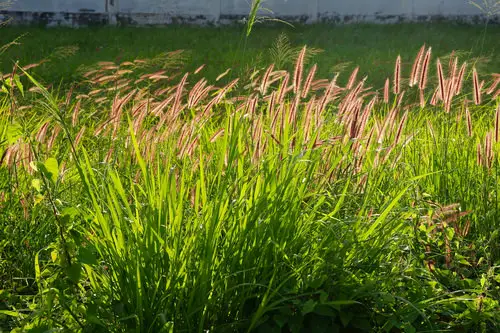
Botanical Name: Cenchrus setaceus
This fast-growing grass is most popularly used as an accent in borders with annual plants and container gardening arrangements. It can grow up to a height of 3-5 feet and prefers a hot climate (USDA Zones 9-11).
3. Japanese Blood Grass
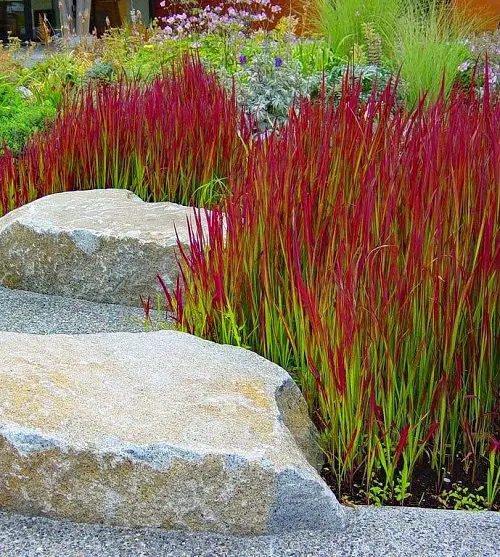
Botanical Name: Imperata cylindrica
Popular for its bright red foliage, it can add a pop of color to any landscape. It needs full sun exposure and summer to get that deep red color on its top–Continuing this, its upper half turns into a burgundy hue in late fall.
4. Red Hook Sedge
Botanical Name: Uncinia rubra
You can add this striking red ornamental grass to your garden that is often referred to as the New Zealand Red Hook Sedge because it is showy and colorful in appearance.
5. Red Riding Hood
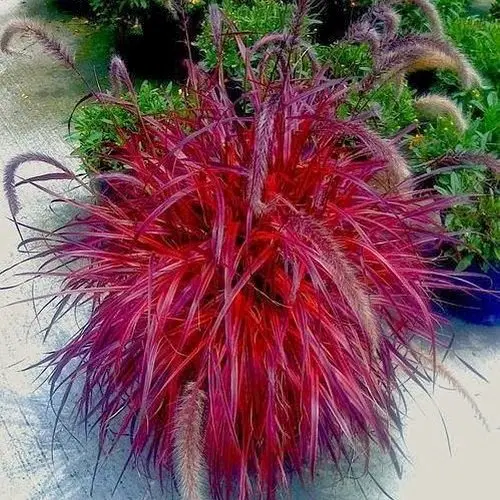
Botanical Name: Pennisetum setaceum ‘Red Riding Hood’
This compact to dwarf herb plant is also called the Purple Fountain Grass, known for its upright-arching burgundy-colored leaves and flower spikes that grow up to 2-4 inches tall.
6. Purple Fountain Grass
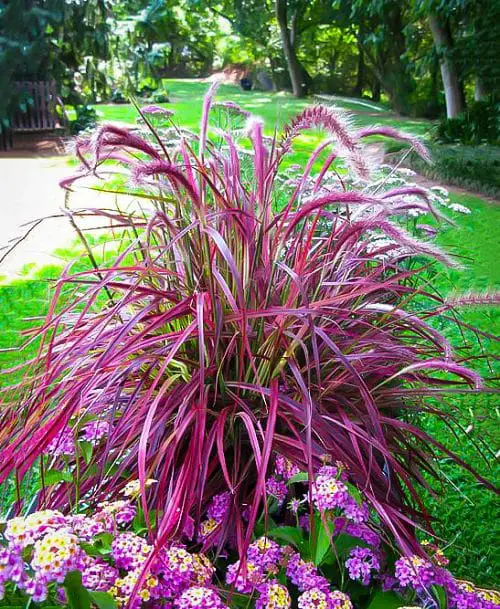
Botanical Name: Pennisetum setaceum ‘Rubrum’
Combing the beautiful shade of red and purple, this works well in borders and containers. For the best color, keep it in bright light.
These plants below are not grasses, but they look like one.
7. Cordyline Charlie Boy
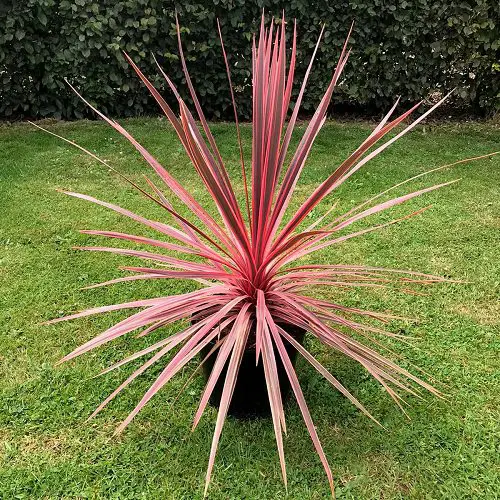
Botanical Name: Cordyline australis ‘Charlie Boy’
If colorful and spiky grasses are your thing, then you shouldn’t miss out on this one! The wonderful mix of red, bright pink, deep purple, and burgundy foliage makes it stand out. It’s perfect for tropical gardens.
8. New Zealand Flax
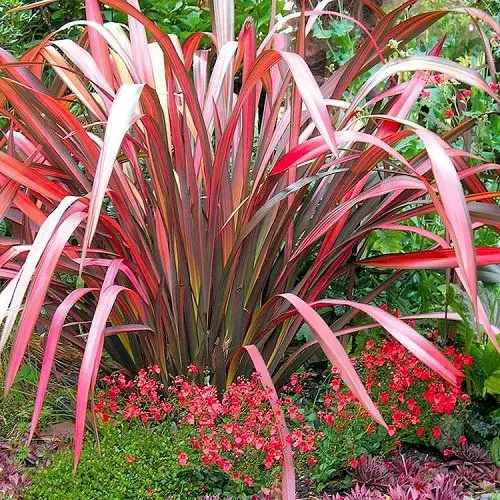
Botanical Name: Phormium tenax
The sword-like leaves of the plant look like grass and come in red, yellow, maroon, and green color. It also grows red or yellow blooms on tall flower stalks that attract hummingbirds.
9. Marginata Bush
Botanical Name: Dracaena Marginata ‘Colorama’
The red-tinted foliage of the most colorful Dracaena variety looks stunning anywhere. Just ensure that it gets bright light exposure for good color.
10. Kochia Scoparia Grass
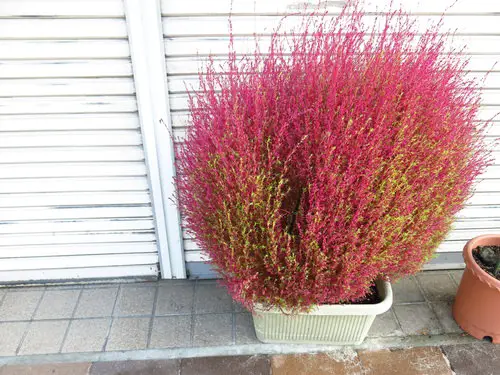
Botanical Name: Kochia scoparia
Also known as kochia or burning bush, it gets the obvious name for its flaming red color of the leaves that the plant takes in autumn.


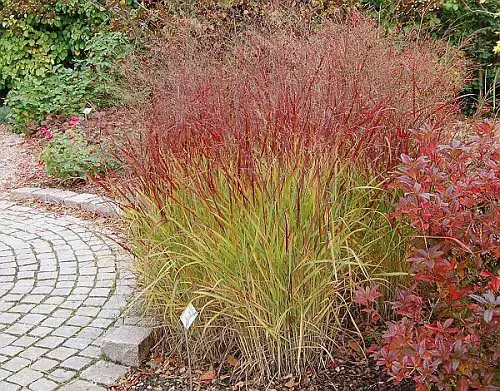
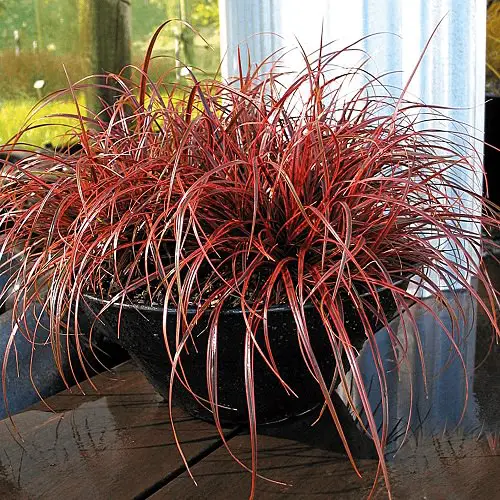
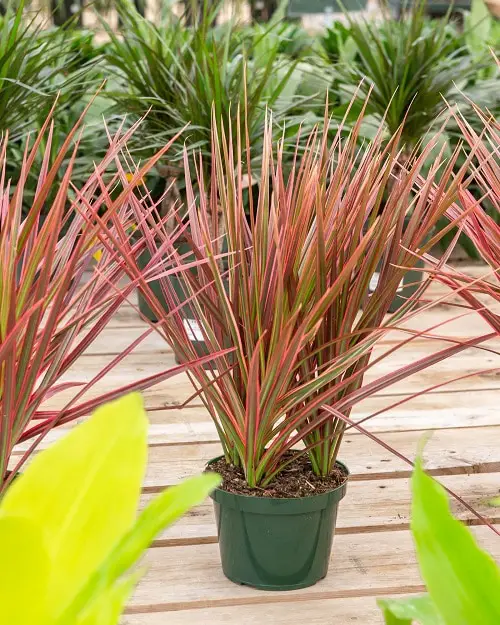

Half these grasses are invasive and damaging to agriculture and native grasslands. Fountain grass is particularly dangerous. Please look into the ecological damage a plant can do before recommending it.
Can you name the ones that you feel are invasive and damaging for us?
I heard the pein bushgrass is very invasive.
For the Red Ornamental Grasses would you please advise what planting zones they do best in! Thank you